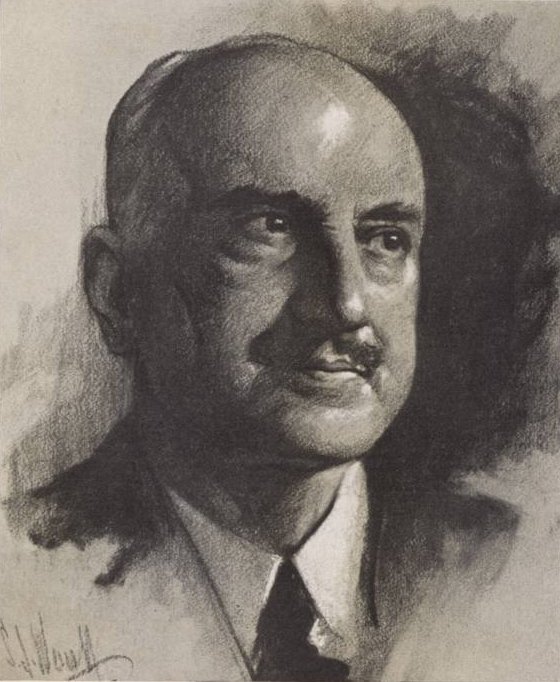George Santayana frasi celebri
Origine: Citato in Focus n. 73, pag. 166.
George Santayana Frasi e Citazioni
“Solo i morti hanno visto la fine della guerra.”
da Soliliquies in England, 1924
Origine: Questa citazione è stata erroneamente attribuita a Platone nell'incipit del film Black Hawk Down. Cfr. Luigi Mascheroni, Mai dette, ma le ripetiamo sempre. Ecco le frasi fantasma della storia http://www.ilgiornale.it/news/mai-dette-ripetiamo-sempre-ecco-frasi-fantasma-storia.html, Il Giornale, 21 marzo 2009, p. 22.
da Introduzione all'Etica di Spinoza; citato in Elena Spagnol, Citazioni, Garzanti, 2003
“La Bibbia è letteratura, non dogma.”
da Introduzione all'Etica di Spinoza
“La teoria ci aiuta a sorreggere la nostra ignoranza sui fatti.”
Origine: Citato in Focus, n. 117, pag. 183.
“Il fanatismo consiste nel raddoppiare gli sforzi quando si è dimenticato l'obiettivo.”
da The Life of Reason, 1905; citato in David Allen, Detto, Fatto!, Sperling & Kupfer, 2006, pag. 66. ISBN 9788820041090
The Life of Reason
da Interpretazioni di poesia e religione; citato in MicroMega. Per una riscossa laica, 2007, p. 98
“Un artista è un sognatore che acconsente di sognare il mondo reale.”
Origine: Da The Life of Reason; citato in Dizionario delle citazioni.
George Santayana: Frasi in inglese
“Philosophers are as jealous as women. Each wants a monopoly of praise.”
Origine: Dialogues in Limbo (1926), P. 30
Origine: The Life of Reason: The Phases of Human Progress (1905-1906), Vol. III, Reason in Religion, Ch. VII
Origine: Persons and Places (1944), p. 14
The Poet's Testament http://www.poemhunter.com/poem/the-poet-s-testament/
Other works
“The mind celebrates a little triumph whenever it can formulate a truth.”
The Life of Reason: The Phases of Human Progress (1905-1906), Vol. IV, Reason in Art
“But what a perfection of rottenness in a philosophy!”
William James, of Santayana's The Interpretations of Poetry and Religion (1900), in a letter to George H. Palmer (1900), as quoted in George Santayana : A Biography (2003) by John McCormick
Misattributed
"Dickens"
Soliloquies in England and Later Soliloquies (1922)
Obiter Scripta (1936)
Other works
"On My Friendly Critics"
Soliloquies in England and Later Soliloquies (1922)
"The Irony of Liberalism"
Soliloquies in England and Later Soliloquies (1922)
“The highest form of vanity is love of fame.”
The Life of Reason: The Phases of Human Progress (1905-1906), Vol. II, Reason in Society
“To know how just a cause we have for grieving is already a consolation.”
The Life of Reason: The Phases of Human Progress (1905-1906), Vol. IV, Reason in Art
“Religion in its humility restores man to his only dignity, the courage to live by grace.”
Origine: Dialogues in Limbo (1926), Ch. 4
"The Academic Environment" p. 47 ( Hathi Trust http://hdl.handle.net/2027/uc1.b3923968?urlappend=%3Bseq=63)
Character and Opinion in the United States (1920)
"The Irony of Liberalism"
Soliloquies in England and Later Soliloquies (1922)
“The living have never shown me how to live.”
"On My Friendly Critics"
Soliloquies in England and Later Soliloquies (1922)
O World, Thou Choosest Not http://www.bartleby.com/236/270.html (1894)
Other works
Origine: The Life of Reason: The Phases of Human Progress (1905-1906), Vol. II, Reason in Society, Ch. VIII: Ideal Society
“It is not society's fault that most men seem to miss their vocation. Most men have no vocation.”
Origine: The Life of Reason: The Phases of Human Progress (1905-1906), Vol. II, Reason in Society, Ch. IV: The Aristocratic Ideal
Origine: The Life of Reason: The Phases of Human Progress (1905-1906), Vol. II, Reason in Society, Ch. IV: The Aristocratic Ideal
Origine: The Life of Reason: The Phases of Human Progress (1905-1906), Vol. II, Reason in Society, Ch. IV: The Aristocratic Ideal
“Our dignity is not in what we do, but in what we understand. The whole world is doing things.”
Origine: Winds of Doctrine: Studies in Contemporary Opinion (1913), p. 199
Gore Vidal, in Palimpsest, A Memoir (1995)
Misattributed
Origine: The Life of Reason: The Phases of Human Progress (1905-1906), Vol. III, Reason in Religion, Ch. VI
Pt. IV, Expression; § 67: "Conclusion.", p. 270
The Sense of Beauty (1896)
The Genteel Tradition at Bay (1931)
Other works
“Perhaps the only true dignity of man is his capacity to despise himself.”
Introduction to The Ethics of Spinoza (1910)
Introduction to The Ethics of Spinoza (1910)
“Animals are born and bred in litters. Solitude grows blessed and peaceful only in old age.”
Origine: Persons and Places (1944), p. 61
“Religions are not true or false, but better or worse.”
This statement is presented in quotes in The Philosophy of Religion and Advaita Vedanta (2008) by Arvind Sharma, p. 216, as a "Santayanan point", but earlier publications by the same author, such as in A Primal Perspective on the Philosophy of Religion (2006), p. 161, state it to be a stance of Santayana without actually indicating or in any ways implying that it is a direct quotation.
Disputed
